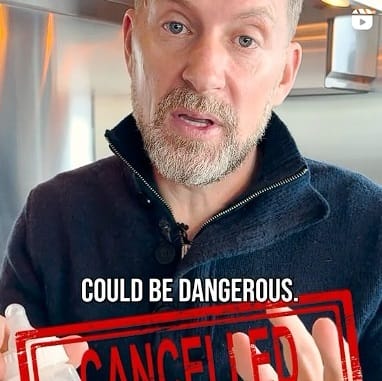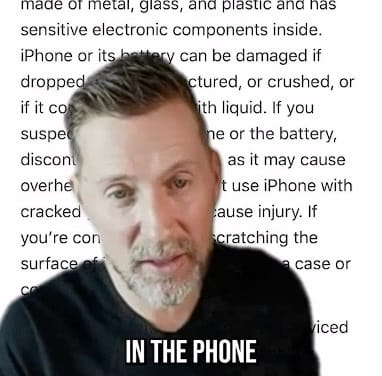- NonToxic Dad Newsletter
- Posts
- Non-Toxic Dad News: Feb. 01, 2024
Non-Toxic Dad News: Feb. 01, 2024
Hello Non-Toxic Friends!
We hope you're doing awesome! Today, we're reaching out with some crucial info that hits close to home – your baby's health.
Did you know that millions of microplastics are released when you warm up breast milk or formula in plastic bottles? It's a shocker! Scientists found a whopping 6.2 million microplastic particles in every liter of baby formula warmed in polypropylene plastic bottles using standard methods!
Our beloved plastic baby bottles have been a go-to for ages, but the risks from microplastics are a newer concern. These tiny troublemakers have been linked to serious health issues in animals, like brain damage and digestive problems.
Now, we get it – animal studies aren't a direct translation to human effects. But hey, we're animals too! When it comes to our babies' health, we're not taking any chances.
Some experts are waving red flags, saying there might be no safe levels of exposure. And get this – baby poop might carry up to 10 times more microplastics than adult poop. Yikes!
And, heads up – just because a plastic bottle is BPA and BPS-free, doesn't mean it's in the clear. Ditching the plastic is the way to go.
Your kiddo's health is our top priority, and we're sharing this info because we care about your family as much as ours. Stay informed, stay on top of things, and let's make sure our little ones grow up in a safe and healthy world.
This Week on Social Media, I talked about:
 |
Blog Spotlights:
Nanoplastics: The Unwanted Guests in Your Bottled Water
So, there I was, sipping on my bottled water, thinking, “Ah, hydration without the guilt of tap water impurities!” Little did I know, there’s a new twist in the water saga – Nanoplastics. Yep, you heard it right. These tiny critters are the new talk of the town, and they’re even sneakier than microplastics!
The Lip Balm Lowdown: 5 Toxins in Your Pocket
Hey there! Let’s chat about something we all use but rarely think twice about – our trusty lip balm and chapsticks. You know, the ones we swipe on without a second thought, whether we’re braving the winter chill or just trying to avoid chapped lips. But, have you ever stopped to consider what’s actually in these little tubes of wonder? Turns out, some of them might not be as friendly as they seem. So, let’s dive into the nitty-gritty of what’s hiding in our lip care and how we can make smarter, healthier choices.
Drinks Messing With Your Noggin: The Inside Scoop
Ever find yourself reaching for that diet soda, a cold beer, or an energy drink and wonder what Drinks Messing With Your Noggin’ is really doing to you? Well, let’s dive into that.
Non-Toxic Tip of the Week:

Here are some practical tips and alternative options to consider for those looking to move away from plastic baby bottles:
Glass Baby Bottles:
Opt for glass baby bottles as they are a safe and environmentally friendly alternative to plastic. They are free from harmful chemicals and can be easily sterilized.
Bamboo Fiber Bottles:
Bamboo fiber bottles are a sustainable option. They are made from natural bamboo and other plant-based materials, providing an eco-friendly choice for parents concerned about the environmental impact of baby products.
BPA and BPS-Free Plastic Alternatives:
If you prefer using plastic, choose baby bottles labeled as BPA and BPS-free. These bottles are made from alternative plastics that do not contain the harmful chemicals associated with traditional plastics.
Temperature-Resistant Materials:
Select bottles made from materials that can withstand different temperatures, making it safe for both warming milk and sterilizing. This ensures the bottle remains durable over time.
Use a Milk Warmer:
Invest in a milk warmer that is specifically designed for baby bottles. These devices often come with temperature control features and can be used with various bottle materials, reducing the need to warm bottles in potentially harmful ways.
Sterilize Safely:
If using glass or stainless steel bottles, explore sterilization methods suitable for these materials, such as boiling or using a steam sterilizer. Avoid high-temperature sterilization methods for plastic bottles.
Regularly Check and Replace:
Inspect baby bottles regularly for any signs of wear or damage. Replace bottles as needed to ensure your baby's safety and well-being.
Remember, every baby is unique, so finding the right bottle may involve some trial and error. It's essential to prioritize your baby's safety and well-being while also considering the environmental impact of your choices.






